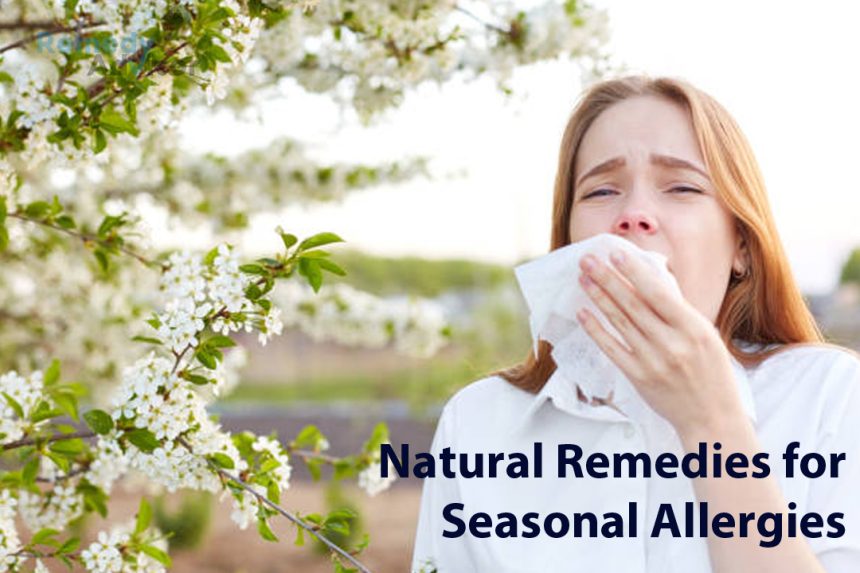More than 20 million Americans undergo from season reactions. Over-the counter and prescription antihistamines, decongestants and steroid nasal sprays might help but they may cause sleepiness and nasal bleeding and may have additional unidentified effects.
Here are some natural remedies that can often be used instead of or in conjunction with medications. Consult a doctor before trying any of these, especially if you are pregnant, planning surgery or taking other medications.
• Quercetin
This supplement is a bioflavonoid the component in fruits and vegetables that gives them their vibrant color. It has natural antihistamine and anti-inflammatory effects.
Typical amount: Start taking quercetin when spring weather starts, and last through the end of June. Take 300 milligrams (mg) twice a day for one week. If that doesn’t work, increase to 600 mg.
If you undergo from fall allergies, start again in mid-August and remain through the first frost. In hot climates, you might have to take Quercetin year-round.
• Stinging nettle
Just like Quercetin, its extract is an outstanding anti-inflammatory and antihistamine. It is used in combination with Quercetin or on its own.
Typical dosage: 400 mg two times a day throughout allergy season.
On-the-spot treatment:
If you find yourself in the throes of an allergy attack in spite of taking quercetin and/or stinging nettle frequently, take an additional amount. I tell my patients to reach for these medicines when they take an antihistamine.
Most allergy victims find Quercetin and/or stinging nettle extremely effectual.
But if they don’t work for you, one of the following natural antihistamines and anti-inflammatories may help either in conjunction with each other or alone. Try them in this order but, of course, talk with your doctor first.
• Vitamin C
Take 1,000 mg once or twice a day during allergy season. This should be decreased or removed throughout the off-season. Current research suggests vitamin C in high amounts might cause thickening of arteries and interfere with certain cancer therapy. Carefulness is recommended for patients with these conditions.
• Pycnogenol
Pycnogenol, an antioxidant derived from the bark of pine trees. Take 50 mg twice a day.
• Ginkgo biloba
Take 60 mg twice a day. Once symptoms subside, stop taking this herb. Used in excess (more than 200 mg per day), it can cause diarrhea or sleeplessness.
Caution: People using blood thinners should avoid ginkgo biloba.
• Feverfew
Buy a product standardized to contain at least 0.7% parthenolide. That is the component of this herb that reduces swelling in the sinuses. Take 500 mg two or three times a day.
More allergy defenses
- Rinse pollen out of your nasal passages before bedtime. Use a saline nasal spray, or make your own nasal wash by dissolving one half teaspoon of salt in one-half cup of water. Place a few drops of the solution in your nose with a dropper, then blow your nose.
- Keep home and car windows closed to keep pollen outdoors. Run an air conditioner continuously to filter air and fight allergy causing molds.
- Run a HEPA filter all the time during allergy season to purify your air of pollen and other allergens. A HEPA vacuum cleaner may also help.
- Shampoo your hair, eyebrows, eyelashes, mustache and beard at bedtime and after outdoor activities. Dust mites and other allergens cling to hairs. Change clothes when you come inside.
- Strengthen your immune system. Better overall health means reduced allergy symptoms. Take a daily multivitamin/mineral supplement, eat healthfully, get adequate rest, exercise regularly and don’t smoke.







